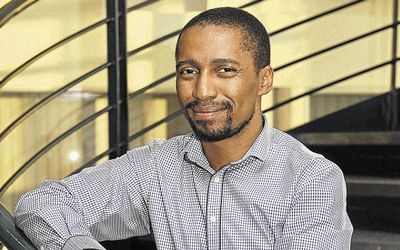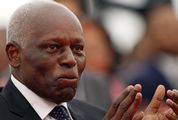STOKVELS may seem old school and uncool to young, professional South Africans, but the concept is thriving. Every month millions of people pool their funds for a common purpose, be it saving for a holiday or to buy a franchise, according to the National Stokvel Association of SA.
Research by African Response last year estimated that stokvels in SA were worth about R25bn, with 8.6-million members in about 421,000 stokvels. The organisation is due to release updated figures soon.
The National Stokvel Association of SA estimates about R45bn is held in about 800,000 stokvels.
According to the association, the concept originated in the early 19th century when English settlers in the Eastern Cape held cattle auctions, or "stock fairs". Locals would pool resources to trade livestock at what became known as "stokvels".
Before 1994, black people were excluded from the mainstream economy. They were unable to own land, which hindered them from building capital and accessing credit.
Stokvels became a key social-savings and credit mechanism, assisting black people to pool their capital. They also gave migrant labourers and displaced people an opportunity to form social networks.
In the late 1980s the apartheid government, fearing the influence of stokvel gatherings, attempted to restrict them. In an effort to protect the groups, Andrew Lukhele, Thabo Sithemjwa and Santy Mokgoatsane founded the National Stokvel Association of SA in 1988.
It was approved as a self-regulatory body by the Registrar of Banks in 1990. Members — who carry out some bank functions such as lending — are exempt from the provisions of the Banks Act.
Stokvels are required to be members of the association or a similar body, although there is no rival organisation and no one polices it. Membership is free.
When Andile Mazwai took the position of CEO of the association 18 months ago, he had big plans to build the stokvel movement and shift its focus to investing, while harnessing the power of bulk buying.
Mazwai is a former CEO of stockbroker Barnard Jacobs Mellet who has run his own business, Mazwai Securities. "I believe that the stokvel movement is flourishing in SA," he says, attributing it to the fact that "South Africans intuitively believe that they can achieve more as a group than as individuals.
"This empowers them to have dreams bigger than themselves. Stokvels allow people to achieve these dreams within the comfort and fun of a social setting."
By joining the association, which has a database of 110,000 stokvels, the power of group saving is amplified.
THE association has piloted a project with Cell C that allows stokvel members to sign up for cellphone contracts, with the association standing as surety. Many stokvel members have not qualified for contracts as they do not earn a salary. If the stokvel performs in terms of the contract, the association gets a 10% cash rebate each quarter of which the stokvel receives 5%.
Mazwai says the success of the Cell C project has encouraged the association to examine similar opportunities with burial schemes. One of the biggest trends among stokvels has been a shift from traditional burial societies to growing interest in investing and social clubs.
Old Mutual’s 2013 Retirement Monitor found that membership of burial societies and grocery schemes was typical among lower income earners, while 49% of black consumers earning R40,000 and more belonged to an investment club.
The younger generation tends to shy away from stokvels, and funeral stokvels prefer to call themselves burial societies, branding themselves as businesses to attract young members. "We might consider rebranding to create accessibility to younger members or we might look at introducing an app with a different name, but the concept remains the same, it is about pooling funds for a common purpose," Mazwai says.
SA has a weak savings culture. "SA’s savings remain disturbingly low relative to other developing countries such as India and Zambia," says Poovi Pillay, head of segment-client engagement at Nedbank.
For the fourth quarter of last year, the national gross savings rate was 15.3% of gross domestic product. Households contributed only 0.2% to the gross savings rate, which has fallen significantly from 2014 when it was 1.6% for the first two quarters. SA had a savings rate of 30% of GDP before 1994.
Domestic savings allow a country to rely less on volatile short-term capital inflows from overseas. The more a country saves, the better it is able to invest for growth, while indebted individuals cannot save or spend, says Mr Pillay. "This means they are unable to contribute to overall growth."
It is unclear how much of the estimated R25bn-R45bn held in stokvels finds its way into the formal financial sector through banks and investments.
African Response found that 65% of stokvel savings cater for burial societies, 30% goes to savings, 21% to groceries and only 4% to investments. Less than half of what stokvels collect is saved or invested.
IN recent years, some banks have started tapping into the stokvel market.
Nedbank has an account aimed at clubs and groups that allows for an unlimited number of members, with a minimum of three members.
Nedbank senior segment manager Thabo Hollo says the account is starting to attract stokvel money. "We are seeing an increase in the take-up of both the new club accounts and an increase in the flow of money into the accounts," he says.
Standard Bank has an account specifically for stokvels that can be opened with R500. Stokvels banking with Standard Bank tend to have a constitution and are represented by a chairperson, treasurer and secretary.
"Whilst we have seen an increase in stokvel money making its way into the bank it has not been huge numbers — many retailers are accepting deposits directly from stokvels which they utilise later to purchase goods," says Standard Bank customer financial solutions manager Nitesh Patel.
The Absa Club Account was created specifically for stokvels, with a minimum opening balance of R50. An Absa spokesman says an "encouraging" number of stokvel accounts are being opened.
"Even as we continue to formalise this market, we make every effort to uphold and not disrupt the stokvel culture and the social nature of its group engagement and collections process," he says.
Absa is working with SaveAct to help stokvels formalise their activities and protect themselves from criminal activity. SaveAct is a nonprofit organisation that helps people to use savings and credit groups to lift them out of poverty.
When Mazwai took up his post at the helm of the National Stokvel Association of SA he said he planned to introduce a free transactional banking service. But, 18 months later, this has not materialised.
He says the association underestimated industry’s inertia to free transactional banking, but he is still intent on making free transactional banking happen.
About 60% of the association’s members use bank accounts, while grocery stokvels often choose to keep their savings with the retailer or wholesaler.
Stokvel members, to some extent, distrust banks, says Mr Mazwai. "The distrust comes from not seeing the value in the bank charges, worse still when the bank argues with the client about bundled services that the client wishes to opt out of. Debit orders can also add to mistrust when errors occur."
The association is working with Investment Solutions on an investment product for stokvels, and a grocery product.
It raises funds for its work by providing a route to market for brands trying to appeal to stokvel members. Companies pay a fee to the association to promote their products at imbizos or through its magazine, Sonke.

Andile Mazwai, CEO of the National Stokvel Association of SA, says rebranding the concept might attract younger people. Picture: RUSSELL ROBERTS
STOKVELS may seem old school and uncool to young, professional South Africans, but the concept is thriving. Every month millions of people pool their funds for a common purpose, be it saving for a holiday or to buy a franchise, according to the National Stokvel Association of SA.
Research by African Response last year estimated that stokvels in SA were worth about R25bn, with 8.6-million members in about 421,000 stokvels. The organisation is due to release updated figures soon.
The National Stokvel Association of SA estimates about R45bn is held in about 800,000 stokvels.
According to the association, the concept originated in the early 19th century when English settlers in the Eastern Cape held cattle auctions, or "stock fairs". Locals would pool resources to trade livestock at what became known as "stokvels".
Before 1994, black people were excluded from the mainstream economy. They were unable to own land, which hindered them from building capital and accessing credit.
Stokvels became a key social-savings and credit mechanism, assisting black people to pool their capital. They also gave migrant labourers and displaced people an opportunity to form social networks.
In the late 1980s the apartheid government, fearing the influence of stokvel gatherings, attempted to restrict them. In an effort to protect the groups, Andrew Lukhele, Thabo Sithemjwa and Santy Mokgoatsane founded the National Stokvel Association of SA in 1988.
It was approved as a self-regulatory body by the Registrar of Banks in 1990. Members — who carry out some bank functions such as lending — are exempt from the provisions of the Banks Act.
Stokvels are required to be members of the association or a similar body, although there is no rival organisation and no one polices it. Membership is free.
When Andile Mazwai took the position of CEO of the association 18 months ago, he had big plans to build the stokvel movement and shift its focus to investing, while harnessing the power of bulk buying.
Mazwai is a former CEO of stockbroker Barnard Jacobs Mellet who has run his own business, Mazwai Securities. "I believe that the stokvel movement is flourishing in SA," he says, attributing it to the fact that "South Africans intuitively believe that they can achieve more as a group than as individuals.
"This empowers them to have dreams bigger than themselves. Stokvels allow people to achieve these dreams within the comfort and fun of a social setting."
By joining the association, which has a database of 110,000 stokvels, the power of group saving is amplified.
THE association has piloted a project with Cell C that allows stokvel members to sign up for cellphone contracts, with the association standing as surety. Many stokvel members have not qualified for contracts as they do not earn a salary. If the stokvel performs in terms of the contract, the association gets a 10% cash rebate each quarter of which the stokvel receives 5%.
Mazwai says the success of the Cell C project has encouraged the association to examine similar opportunities with burial schemes. One of the biggest trends among stokvels has been a shift from traditional burial societies to growing interest in investing and social clubs.
Old Mutual’s 2013 Retirement Monitor found that membership of burial societies and grocery schemes was typical among lower income earners, while 49% of black consumers earning R40,000 and more belonged to an investment club.
The younger generation tends to shy away from stokvels, and funeral stokvels prefer to call themselves burial societies, branding themselves as businesses to attract young members. "We might consider rebranding to create accessibility to younger members or we might look at introducing an app with a different name, but the concept remains the same, it is about pooling funds for a common purpose," Mazwai says.
SA has a weak savings culture. "SA’s savings remain disturbingly low relative to other developing countries such as India and Zambia," says Poovi Pillay, head of segment-client engagement at Nedbank.
For the fourth quarter of last year, the national gross savings rate was 15.3% of gross domestic product. Households contributed only 0.2% to the gross savings rate, which has fallen significantly from 2014 when it was 1.6% for the first two quarters. SA had a savings rate of 30% of GDP before 1994.
Domestic savings allow a country to rely less on volatile short-term capital inflows from overseas. The more a country saves, the better it is able to invest for growth, while indebted individuals cannot save or spend, says Mr Pillay. "This means they are unable to contribute to overall growth."
It is unclear how much of the estimated R25bn-R45bn held in stokvels finds its way into the formal financial sector through banks and investments.
African Response found that 65% of stokvel savings cater for burial societies, 30% goes to savings, 21% to groceries and only 4% to investments. Less than half of what stokvels collect is saved or invested.
IN recent years, some banks have started tapping into the stokvel market.
Nedbank has an account aimed at clubs and groups that allows for an unlimited number of members, with a minimum of three members.
Nedbank senior segment manager Thabo Hollo says the account is starting to attract stokvel money. "We are seeing an increase in the take-up of both the new club accounts and an increase in the flow of money into the accounts," he says.
Standard Bank has an account specifically for stokvels that can be opened with R500. Stokvels banking with Standard Bank tend to have a constitution and are represented by a chairperson, treasurer and secretary.
"Whilst we have seen an increase in stokvel money making its way into the bank it has not been huge numbers — many retailers are accepting deposits directly from stokvels which they utilise later to purchase goods," says Standard Bank customer financial solutions manager Nitesh Patel.
The Absa Club Account was created specifically for stokvels, with a minimum opening balance of R50. An Absa spokesman says an "encouraging" number of stokvel accounts are being opened.
"Even as we continue to formalise this market, we make every effort to uphold and not disrupt the stokvel culture and the social nature of its group engagement and collections process," he says.
Absa is working with SaveAct to help stokvels formalise their activities and protect themselves from criminal activity. SaveAct is a nonprofit organisation that helps people to use savings and credit groups to lift them out of poverty.
When Mazwai took up his post at the helm of the National Stokvel Association of SA he said he planned to introduce a free transactional banking service. But, 18 months later, this has not materialised.
He says the association underestimated industry’s inertia to free transactional banking, but he is still intent on making free transactional banking happen.
About 60% of the association’s members use bank accounts, while grocery stokvels often choose to keep their savings with the retailer or wholesaler.
Stokvel members, to some extent, distrust banks, says Mr Mazwai. "The distrust comes from not seeing the value in the bank charges, worse still when the bank argues with the client about bundled services that the client wishes to opt out of. Debit orders can also add to mistrust when errors occur."
The association is working with Investment Solutions on an investment product for stokvels, and a grocery product.
It raises funds for its work by providing a route to market for brands trying to appeal to stokvel members. Companies pay a fee to the association to promote their products at imbizos or through its magazine, Sonke.






















Change: 0.40%
Change: 0.47%
Change: -0.49%
Change: 0.53%
Change: 1.03%
Data supplied by Profile Data
Change: 1.71%
Change: 1.28%
Change: 0.40%
Change: 0.00%
Change: 1.64%
Data supplied by Profile Data
Change: -1.27%
Change: 0.00%
Change: 0.05%
Change: -0.08%
Change: 0.35%
Data supplied by Profile Data
Change: -0.02%
Change: 0.21%
Change: -0.06%
Change: 0.53%
Change: 0.70%
Data supplied by Profile Data